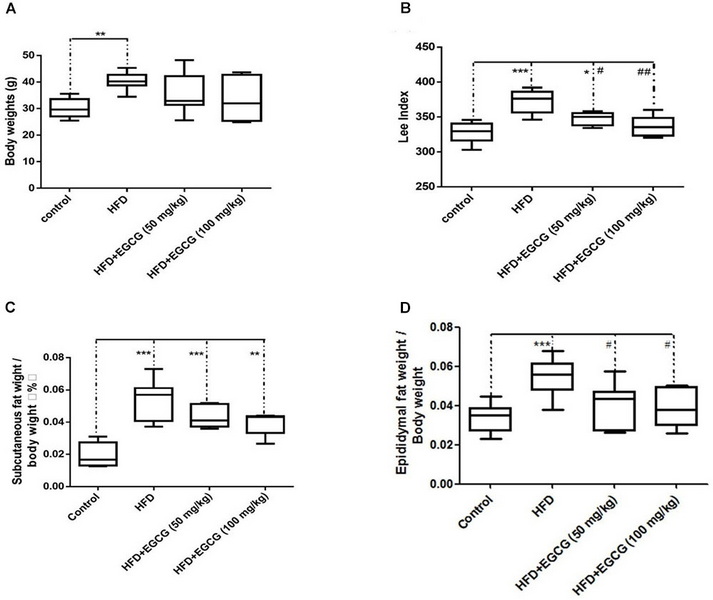Content Menu
● Understanding Green Tea Extract
● How Does Green Tea Extract Aid Weight Loss?
>> Mechanisms of Action
● Scientific Evidence Supporting Weight Loss
>> Key Studies
● Practical Considerations for Using Green Tea Extract
● Potential Side Effects
>> Safety Guidelines
● Conclusion
● FAQ
>> 1. How much green tea extract should I take daily for weight loss?
>> 2. Can I drink regular green tea instead of taking supplements?
>> 3. Are there any side effects associated with green tea extract?
>> 4. How long does it take to see results from taking green tea extract?
>> 5. Is it safe for everyone to take green tea extract?
● Citations:
Green tea extract has gained significant popularity as a potential aid for weight loss, with many claiming it can help shed pounds effectively. This article delves into the science behind green tea extract, its effects on weight loss, and practical considerations for those looking to incorporate it into their weight management strategies.

Understanding Green Tea Extract
Green tea extract is derived from the leaves of the *Camellia sinensis* plant and is rich in bioactive compounds, particularly catechins and caffeine. The most notable catechin in green tea is epigallocatechin gallate (EGCG), which is believed to contribute significantly to its health benefits, including weight loss.
- Catechins: These are powerful antioxidants that may enhance metabolic rate and increase fat oxidation.
- Caffeine: Known for its stimulant effects, caffeine can also boost metabolism and enhance fat burning.
How Does Green Tea Extract Aid Weight Loss?
Research suggests that green tea extract may assist in weight loss through several mechanisms:
- Increased Metabolism: Green tea extract can enhance thermogenesis, the process by which the body burns calories to produce heat. Studies have shown that participants consuming green tea extract burned more calories than those who did not.
- Fat Oxidation: Some studies indicate that green tea extract can increase fat oxidation during exercise, leading to greater fat loss.
- Appetite Regulation: There is evidence to suggest that green tea may help regulate appetite, potentially leading to reduced calorie intake.
Mechanisms of Action
1. Thermogenesis: The increase in body temperature can lead to higher calorie expenditure.
2. Fat Oxidation: Enhanced fat burning during physical activity can contribute to overall fat loss.
3. Hormonal Regulation: Green tea may influence hormones related to appetite and metabolism, such as leptin and ghrelin.
Scientific Evidence Supporting Weight Loss
Numerous studies have explored the relationship between green tea extract and weight loss:
- A systematic review of 60 studies involving over 3,800 participants found that green tea extract significantly reduced body fat percentage and increased antioxidant capacity.
- Another study indicated that individuals consuming high doses of EGCG experienced significant weight loss over 12 weeks.
- However, some research has shown only modest effects on weight loss, suggesting that while green tea extract can aid in weight management, it should not be seen as a miracle solution.
Key Studies
1. A study conducted on mice fed a high-fat diet showed that those who exercised regularly and consumed decaffeinated green tea extract experienced an average body mass reduction of 27.1% after 16 weeks. Additionally, they exhibited significant improvements in metabolic health markers such as reduced fasting blood glucose levels and insulin resistance[2].
2. Another randomized trial involving women with central obesity demonstrated that high-dose EGCG supplementation led to significant weight loss and reductions in waist circumference after 12 weeks without any adverse effects[7].
3. However, a comprehensive review of randomized controlled trials found that while participants consuming green tea preparations experienced some weight loss, the results were statistically insignificant and not clinically important[4][9].
Practical Considerations for Using Green Tea Extract
For those considering adding green tea extract to their weight loss regimen, here are some practical tips:
- Dosage: Most studies suggest a daily dosage of around 500 mg of green tea extract standardized to contain 45-50% EGCG. It's crucial not to exceed recommended dosages due to potential side effects.
- Form: Green tea extract is available in various forms including capsules, powders, and teas. Choose a form that fits your lifestyle and preferences.
- Combine with Exercise: For optimal results, combine green tea extract with regular physical activity. Research indicates that its effects are enhanced when paired with exercise.

Potential Side Effects
While generally considered safe for most people, high doses of green tea extract may lead to side effects such as:
- Liver toxicity
- Gastrointestinal issues
- Increased heart rate or anxiety due to caffeine content
It's advisable for individuals with pre-existing health conditions or those taking medications to consult a healthcare provider before starting supplementation.
Safety Guidelines
1. Drinking moderate amounts of green tea (about 3 to 5 cups per day) is likely safe for most people and provides at least 180 mg of catechins[1].
2. High doses of green tea extract (above 600 mg EGCG per day) have been linked to liver damage in some cases[10]. Therefore, caution is advised when considering supplementation.
3. Individuals sensitive to caffeine should be mindful of their total intake from both green tea and other sources[6].
Conclusion
In conclusion, while green tea extract may offer some benefits for weight loss through mechanisms like increased metabolism and fat oxidation, its effects are generally modest. It should be viewed as a supplementary aid rather than a standalone solution. Combining green tea extract with a balanced diet and regular exercise is likely the most effective approach for those seeking to lose weight.

FAQ
1. How much green tea extract should I take daily for weight loss?
Most studies recommend a daily dosage of around 500 mg of standardized green tea extract containing 45-50% EGCG.
2. Can I drink regular green tea instead of taking supplements?
Yes, drinking 2-3 cups of brewed green tea daily can also provide benefits for weight management due to its catechin content.
3. Are there any side effects associated with green tea extract?
Potential side effects include liver toxicity at high doses, gastrointestinal issues, and increased heart rate due to caffeine content.
4. How long does it take to see results from taking green tea extract?
Results can vary; some studies show significant changes within 12 weeks when combined with a healthy lifestyle.
5. Is it safe for everyone to take green tea extract?
While generally safe for most people, those with certain health conditions or sensitivities should consult a healthcare provider before use.
Citations:
[1] https://www.drugs.com/npp/green-tea.html
[2] https://www.psu.edu/news/research/story/research-suggests-green-tea-exercise-boost-weight-loss-health
[3] https://www.frontiersin.org/journals/pharmacology/articles/10.3389/fphar.2018.01366/full
[4] https://www.cochrane.org/CD008650/ENDOC_green-tea-for-weight-loss-and-weight-maintenance-in-overweight-or-obese-adults
[5] https://pubmed.ncbi.nlm.nih.gov/11251015/
[6] https://www.webmd.com/vitamins/ai/ingredientmono-960/green-tea
[7] https://pubmed.ncbi.nlm.nih.gov/26093535/
[8] https://pmc.ncbi.nlm.nih.gov/articles/PMC8406948/
[9] https://www.nytimes.com/2024/09/24/well/green-tea-weight-loss-ozempic.html
[10] https://www.canada.ca/en/health-canada/services/food-nutrition/public-involvement-partnerships/notice-modification-list-permitted-supplemental-ingredients-permit-use-green-tea-extract-supplemental-ingredient-foods/document.html
[11] https://www.urmc.rochester.edu/encyclopedia/content?contenttypeid=19&contentid=greenteaextract
[12] https://www.healthline.com/nutrition/green-tea-and-weight-loss






























